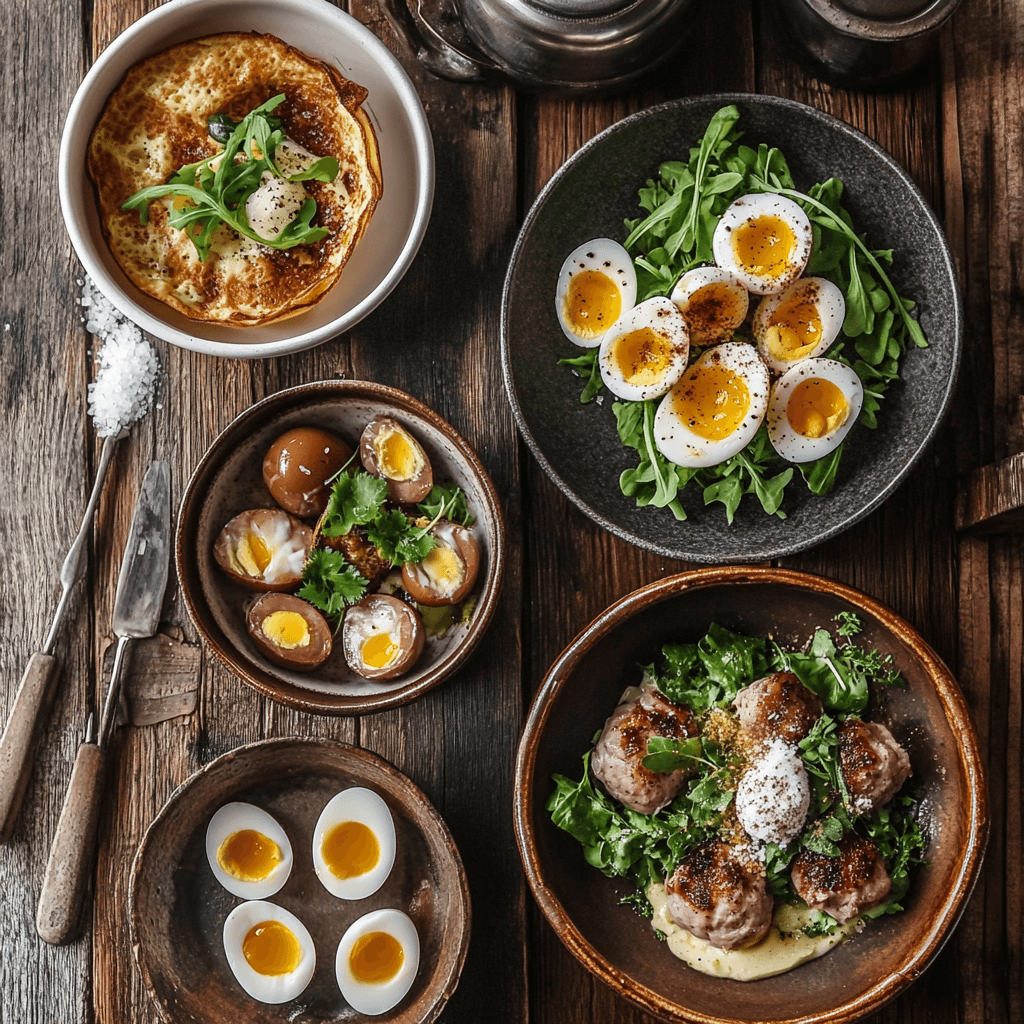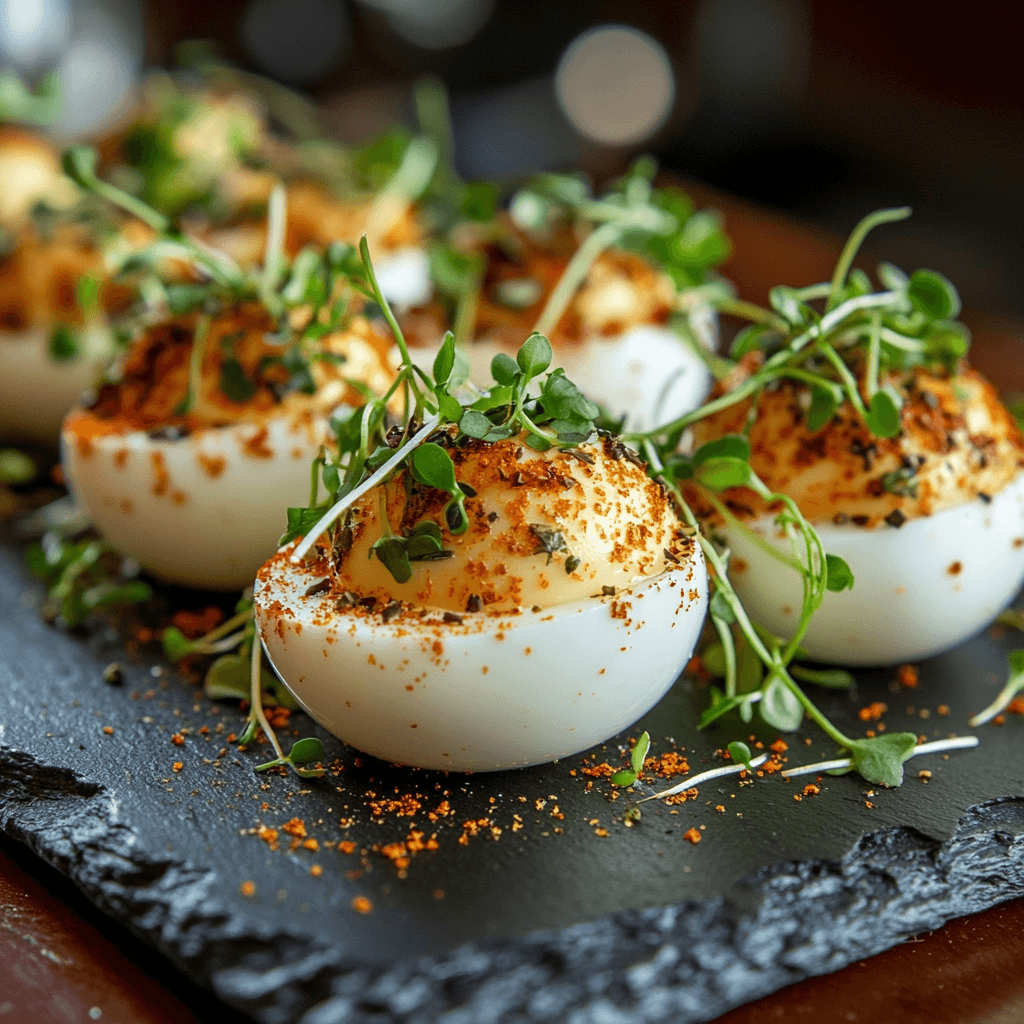Exploring quail eggs shows their unique traits and benefits. They are small, have a delicate taste, and are very nutritious. Their creamy yolks and soft whites make them perfect for adding elegance to dishes.
This guide introduces you to quail eggs’ versatility and taste. You’ll see how they can enhance various dishes, from starters to main courses. Whether you’re a pro chef or a home cook, quail eggs will spark your creativity. This guide will help you start using quail eggs in your cooking.
Table of contents
- Key Takeaways
- Understanding Quail Eggs: Nature’s Tiny Treasures
- Essential Tools for Preparing Quail Eggs
- The Culinary Uses of Quail Eggs in Modern Cuisine
- Mastering Basic Preparation Techniques
- Creative Serving Suggestions and Garnishing
- Storage and Freshness Guidelines
- Pairing Quail Eggs with Other Ingredients
- Quail Egg Pairing Ideas
- Common Cooking Mistakes to Avoid
- Conclusion: Elevating Your Culinary Creation with Quail Eggs
- FAQ
- What are the unique characteristics of quail eggs?
- What are the nutritional benefits of quail eggs?
- What equipment is needed to prepare quail eggs?
- How can quail eggs be used in modern cuisine?
- What are the basic preparation techniques for quail eggs?
- How can quail eggs be served and garnished?
- How should quail eggs be stored and handled for maximum freshness?
- What are some effective ways to pair quail eggs with other ingredients?
- What are the common mistakes to avoid when cooking quail eggs?
Key Takeaways
- Quail eggs have a lower egg white to yolk ratio compared to chicken eggs, affecting culinary applications and introduction to quail eggs.
- Quail eggs weigh approximately 10 grams, compared to chicken eggs which weigh around 55 grams, making them a great ingredient for various culinary uses.
- Quail eggs have significantly higher nutritional value by weight than chicken eggs, providing elevated levels of vitamins A, B1, B2, iron, phosphorous, and calcium, and are a delicacy in many cultures.
- Hard boiling quail eggs using a pressure cooker allows for easy peeling, and is a great way to prepare quail eggs for culinary uses.
- Quail eggs can be used in a variety of dishes, from appetizers to main courses, making them a versatile ingredient for chefs and home cooks looking to add a touch of elegance to their dishes and explore new culinary uses.
- Quail eggs are a perfect ingredient for chefs and home cooks looking to add a touch of elegance to their dishes, and are a great addition to various culinary uses and introduction to quail eggs.
- With their rich, creamy yolks and delicate whites, quail eggs are sure to inspire your next culinary creation, and this guide will provide you with the knowledge you need to get started with quail eggs and their culinary uses.
Understanding Quail Eggs: Nature’s Tiny Treasures
Quail eggs are a favorite in many places, like Western Europe. They are known for their special nutritional benefits and flavor profile. With a bigger yolk and less white, they taste richer and buttery. They also pack more protein, healthy fats, and vitamins than chicken eggs, making them a hit with chefs and food lovers.
Quail eggs are small, weighing about 10-12 grams. They have a delicate flavor profile. They’re also packed with iron, having about five times more than chicken eggs. Plus, they’re a good source of potassium, which helps keep blood pressure healthy and supports muscles and nerves.
Physical Characteristics
Quail eggs have a thicker shell and are smaller than chicken eggs. They’re also more likely to break because they’re so delicate.
Flavor Profile
The flavor profile of quail eggs is richer and more buttery than chicken eggs. This makes them a favorite in cooking. They’re also used as a garnish or ingredient in dishes, adding a unique flavor profile.
Nutritional Benefits
Quail eggs are packed with nutrients like high-quality protein, healthy fats, and vitamins. They’re also low in calories and full of antioxidants. This makes them a great choice for those who care about their health.
- High-quality protein
- Rich in healthy fats
- Good source of essential vitamins and minerals
- Low in calories
- Rich in antioxidants
Quail eggs are a special and nutritious food. They offer many nutritional benefits and a delicate flavor profile. This makes them a favorite for cooking and for those who want to eat healthy.
Essential Tools for Preparing Quail Eggs

To cook quail eggs, you’ll need a pot, a steamer basket, and a timer. The right cooking techniques can greatly improve their texture and taste. A good pot and steamer basket are crucial. You can boil, steam, or fry quail eggs, each needing its own tools.
Here are some key tools to get you started:
- A pot with a heavy bottom for even heat distribution
- A steamer basket to cook quail eggs without breaking
- A timer to ensure your quail eggs are cooked to perfection
- A pair of quail egg scissors to optimize the opening process
Using the right essential tools and cooking techniques is key. With practice, you can master quail egg preparation. Whether boiling, steaming, or frying, the right tools and methods matter.
Investing in the right essential tools and learning top cooking techniques unlocks quail eggs’ full potential. So, why not start today and explore the wonders of quail eggs?
The Culinary Uses of Quail Eggs in Modern Cuisine
Quail eggs are loved in many modern cuisines, like Japanese, Chinese, and Italian. They’re great in sushi, stir-fries, pasta, and pizza. Their versatility and taste make them a classy addition to dishes.
In modern cuisine, quail eggs are used in traditional applications and contemporary cooking methods. They’re a key ingredient in many international dishes, including Japanese, Chinese, and Italian cuisine.
- As a topping for sushi and sashimi
- In stir-fries and sautéed dishes
- In pasta and pizza dishes
- In molecular gastronomy and fusion cuisine
Quail eggs are very versatile. They’re a fantastic addition to any modern dish.
Mastering Basic Preparation Techniques
To cook quail eggs like a pro, you need to know the basic preparation steps. You can boil, steam, or fry them. Each method needs careful timing and temperature control. For instance, soft-boiled quail eggs cook for about 2 minutes. Hard-boiled ones take 4-5 minutes.
Quail eggs are versatile in cooking methods. You can find perfect sheet pan eggs for a quick breakfast at rafelrecipes.com. Here are some tips for preparing quail eggs:
- Quail eggs have about 1.2 grams of protein per egg, perfect for health lovers.
- They’re packed with vitamins like B12, B2 (riboflavin), and A. They also have minerals like selenium, iron, and phosphorus.
- Cooking times vary. Soft-boiled quail eggs cook in 2 minutes, while hard-boiled ones take 4-5 minutes.
Mastering these basic preparation techniques and cooking methods lets you make many tasty dishes. Quail eggs are great in salads, appetizers, or breakfasts. With practice, you’ll get better at cooking quail eggs and enjoy their health benefits.
Creative Serving Suggestions and Garnishing
Quail eggs are versatile, great for appetizers to main dishes. They can be topped with herbs, spices, and other ingredients for extra flavor and looks. The options for creative serving are endless. You can put quail eggs on salads, soups, or other dishes, or serve them alone as a side.
Some favorite ways to serve quail eggs include:
- As an appetizer, paired with smoked salmon or caviar
- As a main course, served with vegetables or meat
- As a garnish, added to soups or salads
Quail eggs are also great for decoration. They can be placed on a platter or used as a garnish for other dishes. Their small size and delicate taste make them a perfect addition to many meals. By using quail eggs in your cooking, you can impress your guests with creative serving and garnishing ideas.
| Creative Serving Idea | Ingredients | Instructions |
|---|---|---|
| Quail Egg Appetizer | Quail eggs, smoked salmon, caviar | Arrange quail eggs on a platter with smoked salmon and caviar |
| Quail Egg Salad | Quail eggs, mixed greens, vegetables | Toss quail eggs with mixed greens and vegetables for a healthy and delicious salad |
Storage and Freshness Guidelines
Proper storage is key for quail eggs to stay fresh. These eggs are very perishable and need careful handling. Store them in the fridge at 40°F (4°C) or below.
Follow the right storage methods to keep quail eggs fresh. Use a clean, dry container and avoid strong-smelling foods. Learn more about egg storage and handling to enjoy your quail eggs fully.
Here are some important freshness tips:
- Refrigerated unwashed quail eggs can stay fresh for up to 6 weeks.
- Refrigerated washed quail eggs should be eaten within 1 to 2 weeks.
- Hard-boiled quail eggs can be stored in the fridge for up to 1 week after cooking.
By following these guidelines, you can enjoy your quail eggs longer while keeping them fresh. Always check for spoilage before eating. Store them to prevent moisture and contaminants.
| Storage Method | Shelf Life |
|---|---|
| Refrigerated unwashed | Up to 6 weeks |
| Refrigerated washed | 1 to 2 weeks |
| Hard-boiled | Up to 1 week |
Pairing Quail Eggs with Other Ingredients
Quail eggs offer endless pairing options. They can be used in salads, stir-fries, and more. Their unique flavor adds elegance to any dish.
Herbs, spices, and other foods pair well with quail eggs. For instance, they go great with avocados. This combo is not only tasty but also boosts the dish’s appeal, making it more likely to be shared online.
Here are some ingredients that pair well with quail eggs:
- Smoked salmon
- Caviar
- Truffle oil
- Fresh herbs, such as parsley or chives
Quail eggs can also be used in various dishes, like:
Quail Egg Pairing Ideas

- Salads, like Red Quinoa and Quail Egg Salad
- Stir-fries, with soy sauce and garlic
- Breakfast dishes, like Shakshuka with Quail Eggs
When pairing quail eggs, think about the flavors and textures. Mixing them with the right ingredients creates unique, tasty dishes that wow your guests.
| Ingredient | Flavor Profile | Texture |
|---|---|---|
| Quail Eggs | Rich, creamy | Soft, delicate |
| Avocado | Mild, nutty | Smooth, creamy |
| Smoked Salmon | Smoky, savory | Firm, flaky |
Common Cooking Mistakes to Avoid
When cooking with quail eggs, it’s key to steer clear of common mistakes. These can mess up the eggs’ texture and taste. Issues like temperature control, timing, and handling are common mistakes. To make tasty quail egg dishes, you must watch out for these and avoid them.
Temperature control is crucial when cooking quail eggs. They are more delicate than chicken eggs and need gentle heat. Too high heat can make them rubbery, while too low heat can leave them runny. For more on temperature control, check out rafelrecipes.com.
Temperature Control Issues
To keep temperature issues at bay, monitor the heat closely. Adjust it as needed. A thermometer can help you keep the heat right. Also, using a double boiler or heat diffuser can help cook the eggs gently.
Timing Errors
Timing is also key when cooking quail eggs. Wrong timing can mess up their texture and taste. Use a timer to cook them for the right time. A cooking chart can also guide you to the perfect doneness.
By avoiding common mistakes like temperature and timing issues, you can make delicious quail egg dishes. With practice and patience, you’ll get the hang of cooking quail eggs. Enjoy their unique flavor and texture.
Conclusion: Elevating Your Culinary Creation with Quail Eggs
When you start cooking, think about adding quail eggs to your recipes. These small eggs can make any dish look and taste better. They add a fancy touch with their creamy yolks and soft whites.
Quail eggs are also super good for you. They have more protein, vitamins, and minerals than regular eggs. They can make your meals healthier and more exciting, whether it’s for appetizers, main dishes, or even desserts.
Try using quail eggs to improve your cooking and impress your friends. They offer a world of flavors and textures to play with. Enjoy making dishes that look amazing and taste even better, creating unforgettable moments for everyone.
FAQ
What are the unique characteristics of quail eggs?
Quail eggs are smaller than chicken eggs but have a richer flavor. They have a higher yolk-to-white ratio. This makes them taste more buttery. They also have a delicate, creamy texture.
What are the nutritional benefits of quail eggs?
Quail eggs are full of nutrients like high-quality protein, vitamins, and minerals. They have more vitamins A, B, and E than chicken eggs. They also have more iron, phosphorus, and potassium.
What equipment is needed to prepare quail eggs?
To prepare quail eggs, you need a small saucepan or steamer. Also, a slotted spoon and gentle touch when handling the shells.
How can quail eggs be used in modern cuisine?
Quail eggs are great in many dishes, from appetizers to main courses. They add elegance and sophistication to international cuisines.
What are the basic preparation techniques for quail eggs?
Quail eggs can be boiled, steamed, or fried. It’s key to watch the timing and temperature. This ensures they taste great and have the right texture.
How can quail eggs be served and garnished?
Quail eggs are great as appetizers or in main dishes. They’re also perfect for adding a touch of elegance. Their small size and delicate taste make them ideal for creative serving and garnishing.
How should quail eggs be stored and handled for maximum freshness?
Keep quail eggs in the fridge and use them within a few days. Store them in their original carton. Check for quality signs to keep them fresh.
What are some effective ways to pair quail eggs with other ingredients?
Quail eggs pair well with meats, seafood, veggies, and herbs. Experiment with different flavors to create delicious and visually appealing dishes.
What are the common mistakes to avoid when cooking quail eggs?
Common mistakes include not controlling temperature and timing well. Overcooking can make them tough or dry. Also, be gentle when handling to avoid breaking the shells.

